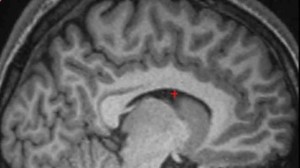Published: October 10, 2011

A recent study by the University of Otago, Wellington into internet pro-suicide and support sites indicates that significant improvements need to be made in this area to help prevent suicidal behaviour.
The study led by Professor Sunny Collings from the Social Psychiatry and Population Mental Health Unit investigated the quality and content of websites related to suicide both in New Zealand and internationally.
“At this stage the impact of the internet in relation to suicide isn’t well understood,” says Professor Collings, “so this research increases our understanding of this area, and points the way to improvements in support sites to assist in the prevention of suicidal behaviour.”
The study investigated websites using Google, Yahoo and MSN and added NZ search engines AltaVista, GoogleNZ and SearchNZ. A total of 2160 search results from 718 distinct sites were analyzed in terms of their content and placement.
Among the 2160 hits, 72 distinct sites appeared as the top result in at least one search. The most common were pro-suicide or suicide permissive sites (33%), while support sites for those wanting information were the second most common at 18%.
Four pro-suicide sites featured amongst the ten most retrieved Google results, but only one support site featuring in Google’s top 10. None of the top 10 sites from Google were NZ based.
“One of the big problems with the internet is that pro-suicide sites are often the first thing people see when they search about methods,” says Professor Collings. “In contrast support sites were only 9.3% of total hits, but never featured as the number one search result.” [continue reading…]
Published: October 9, 2011

Medicines which increase levels of the brain chemical dopamine may hold the key to helping those addicted to cocaine and amphetamines kick the habit, researchers from the University of Cambridge have found.
Unlike heroin users who may benefit from methadone when attempting to quit, there is currently no medication which has proven to be an effective tool in assisting cocaine and amphetamines users when attempting to quit.
“Treatment for stimulant dependence is difficult and often individuals battling addiction relapse several times,” said Dr Karen Ersche, of the Behavioural and Clinical Neuroscience Institute (BCNI) at the University of Cambridge, who led the research.
“At the moment, the standard treatment for people dependent on cocaine and amphetamines mainly involves behavioural approaches such as counselling and cognitive-behavioural therapy – which are useful. However, our research provides important insight into the potential development of medications which could help curb the desire of those plagued with addiction, increasing the likelihood of a successful recovery.”
For the research, Dr Ersche and her Cambridge colleagues asked stimulant-dependent individuals and volunteers who do not use drugs to perform a learning task while their brains were scanned. They found that stimulant-dependent people had problems with adjusting their behaviour when one of the rules was changed – they persistently responded to the previously correct stimulus despite being repeatedly told that the rule had changed and their responses were wrong. [continue reading…]
Published: October 9, 2011
A new study of the brain explains why some of us are better than others at remembering what really happened.
 A structural variation in a part of the brain may explain why some people are better than others at distinguishing real events from those they might have imagined or been told about, researchers have found.
A structural variation in a part of the brain may explain why some people are better than others at distinguishing real events from those they might have imagined or been told about, researchers have found.
The University of Cambridge scientists found that normal variation in a fold at the front of the brain called the paracingulate sulcus (or PCS) might explain why some people are better than others at accurately remembering details of previous events -such as whether they or another person said something, or whether the event was imagined or actually occurred. The research was published today, 05 October, in the Journal of Neuroscience.
This brain variation, which is present in roughly half of the normal population, is one of the last structural folds to develop before birth and for this reason varies greatly in size between individuals in the healthy population. The researchers discovered that adults whose MRI scans indicated an absence of the PCS were significantly less accurate on memory tasks than people with a prominent PCS on at least one side of the brain. Interestingly, all participants believed that they had a good memory despite one group’s memories being clearly less reliable. [continue reading…]
Published: October 8, 2011

istockphoto
hile medical researchers continue the search for advanced diagnosis, prevention and treatment of dementia, a researcher at
Royal Holloway, University of London is focusing on improving the experiences of those already suffering with the devastating disease for whom any cure would be too late.
Professor Helen Nicholson is devoting her time to evaluating a pioneering project which enables advanced dementia sufferers to take part in art, drama and dance projects.
Hearts and Minds is a unique creative arts and reminiscence project, run by Age Exchange, specifically for older people with Alzheimer’s or other forms of dementia but also including people with other mental health needs such as schizophrenia and depression.
Artists are be working with care staff in South London and Maudsley NHS Trust to hold group work and one-to-one performing arts session with dementia sufferers.
Dementia is a terrifying and isolating disease that affects brain function and in particular the ability to remember, think and reason. Around 750,000 people have been diagnosed with dementia in the UK and the Department of Health predicts that this number is to double in the next 30 years. There is no cure and symptoms will get worse over time.
Although dementia sufferers often have little or no short term memory, their long term memory is intact and they can use this in the Hearts and Minds project. [continue reading…]




